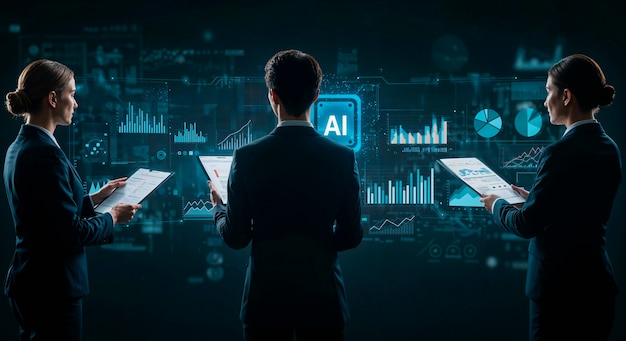When Strategy Meets AI: Rewriting the Consulting Playbook
For decades strategy consulting has revolved around frameworks, benchmarks and experience. Consultants studied industries, mapped competitors, analysed trends and delivered polished slide decks with recommendations. This playbook has served executives well in a relatively stable world where competitive advantage could be sustained for years. But the rise of artificial intelligence is changing the rules. Traditional methods are no longer enough to keep pace with the velocity of change. A new consulting playbook is emerging, one that blends human judgement with machine intelligence.
The shift from hindsight to foresight
Classic strategy often relied on analysing historical data and extrapolating into the future. AI alters this dynamic. Machine learning models can process vast data streams in real time, spotting weak signals and non-obvious patterns long before humans can. For a retailer, this may mean anticipating demand shifts at the neighbourhood level. For an energy company, it could mean forecasting fluctuations in consumption with far greater precision.
Consultants who once built projections from spreadsheets must now learn how to guide clients in harnessing predictive models. The role is shifting from data analyst to sense-maker, helping leaders translate complex AI-driven insights into actionable strategy.
From static frameworks to adaptive systems
Well-known frameworks such as Porter’s Five Forces or the Growth-Share Matrix were built for an era when industries had clear boundaries and competitive positions moved slowly. Today business ecosystems are fluid. AI accelerates this fluidity by enabling new entrants to scale fast, by creating unexpected partnerships and by reshaping cost structures overnight.
Strategy consultants can no longer offer one-off recommendations. They must help organisations design adaptive systems that evolve continuously. This involves building AI-enabled dashboards that update strategic options as conditions change, setting up feedback loops that combine human experience with machine recommendations and training leaders to think in scenarios rather than static plans.
Augmenting judgement, not replacing it
There is a temptation to believe that AI can fully replace human decision-making. In reality, the most powerful results come from augmentation. Machines excel at finding patterns and probabilities. Humans excel at interpreting context, weighing values and understanding cultural nuances. A pricing algorithm might suggest optimal discount levels, but a leadership team must still decide whether aggressive moves fit with brand positioning and long-term trust.
The future of consulting lies in guiding this collaboration. Advisers must be bilingual, fluent in both strategic reasoning and AI capabilities, able to frame the right questions for algorithms and translate outputs into narratives that executives can act upon.
Rethinking value delivery in consulting
The consulting industry itself is under pressure. Clients are asking why they should pay premium fees for analyses that algorithms can generate in seconds. To stay relevant, firms need to shift their value proposition. Instead of charging for data crunching, they must focus on judgment, creativity, ethical guidance and the ability to integrate AI into the broader strategy of the organisation.
Leading firms are already experimenting with AI-driven scenario labs, digital twins of entire supply chains and recommendation engines that allow executives to explore strategic moves interactively. This represents a step-change from the static PowerPoint deck toward an ongoing advisory relationship.
The way forward
When strategy meets AI the consulting playbook is rewritten around adaptability, augmentation and foresight. Consultants who cling to old frameworks risk irrelevance. Those who embrace AI as a partner in strategic thinking can help businesses navigate uncertainty with greater confidence.
The core of strategy has not disappeared. It is still about making choices under uncertainty. What has changed is the toolkit available. With AI, consultants can illuminate more of the unknowns and create strategies that are not only smarter but also more resilient.
